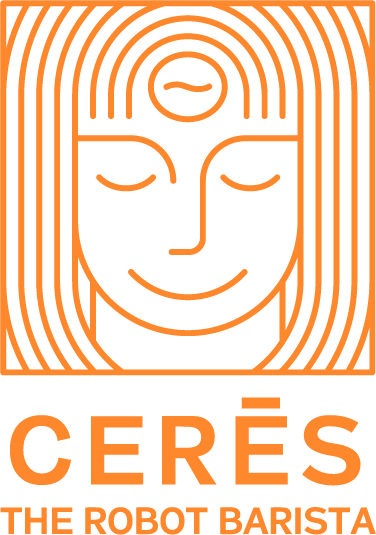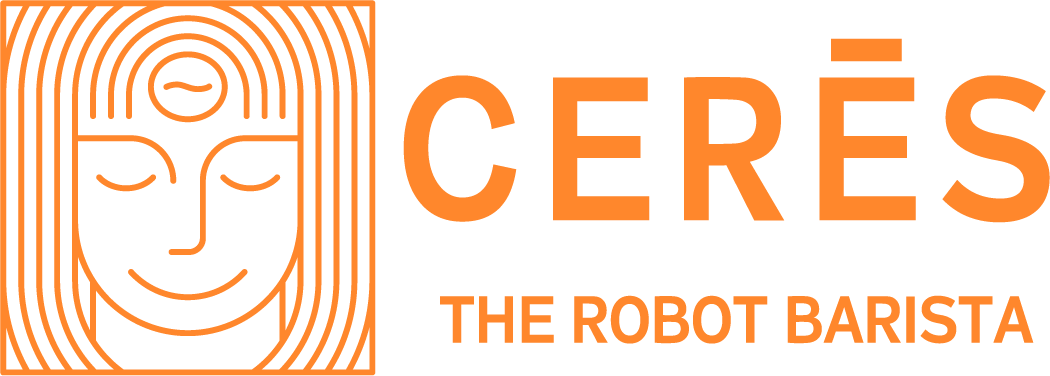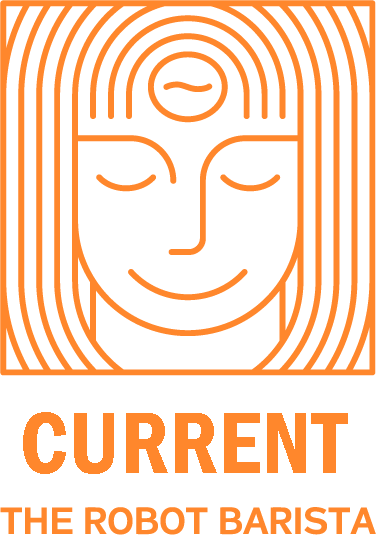Trends in Robot Barista Technology for 2025 and Innovative Approaches to Optimize Coffee Services
As we approach 2025, the landscape of coffee service is poised for transformation, largely driven by advancements in Robot Barista technology. This innovative field combines artificial intelligence, robotics, and customer service, promising to redefine how we experience our daily coffee rituals. The emergence of Robot Baristas is not just a fleeting trend; it signifies a shift towards efficiency, personalization, and sustainability in coffee preparation. With the continuous evolution of machine learning algorithms and robotics, we can expect a new generation of smart machines that understand consumer preferences and can adapt to provide tailored coffee experiences.
Moreover, the integration of innovative approaches in optimizing coffee services will play a crucial role in setting businesses apart in a competitive market. From contactless service models to enhanced customer interactions through data analytics, Robot Baristas are paving the way for a seamless customer experience. As we delve into the latest trends in Robot Barista technology for 2025, it becomes evident that the future of coffee service is not just about perfecting the brew but also about enhancing the overall customer journey in a digital-first world.
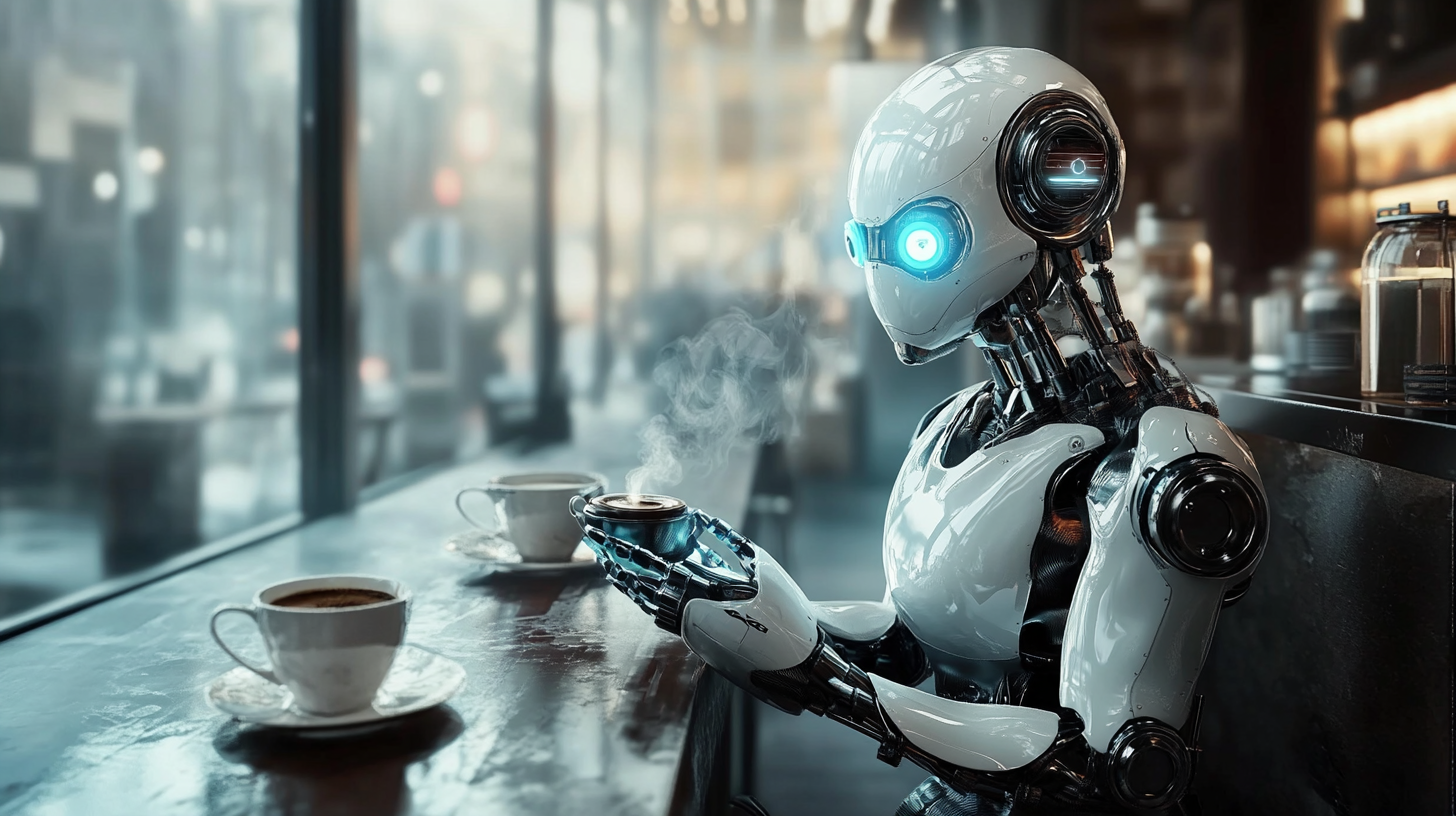
The Evolution of Robot Baristas: What to Expect by 2025
As we look towards 2025, the evolution of robot baristas promises to redefine our coffee service experiences. The latest advancements in this technology are evident in the recent unveiling of the ADAM robot by Richtech Robotics at CES 2024. Not only is this robot designed to serve beverages, but it also showcases the versatility of robotics in social settings, as seen during Kendall Jenner’s marketing event. This illustrates a significant trend where robot baristas and bartenders are not just machinery but integral components of experiential marketing, blurring the lines between service and entertainment. Moreover, the integration of artificial intelligence in coffee services is paving the way for innovative solutions. The Current Robo Coffee Shop exemplifies this trend, operating as a smart kiosk that utilizes AI to craft specialty coffee beverages with remarkable precision. According to industry reports, the global coffee robotics market is projected to grow at a compound annual growth rate (CAGR) of 23% over the next five years. This surge is driven by a combination of increasing consumer demand for personalized coffee experiences and the ongoing push for efficiency and convenience in the foodservice industry. As robots become more sophisticated, their capacity to adapt and respond to consumer preferences will enhance the quality of service. By 2025, we can expect a proliferation of self-serve robotic coffee kiosks that not only streamline operations but also engage customers in ways that traditional baristas cannot. The evolution of these robotic systems signifies a critical shift in how coffee is served, promising not only speed and accuracy but also an innovative customer experience that invigorates the coffee culture.
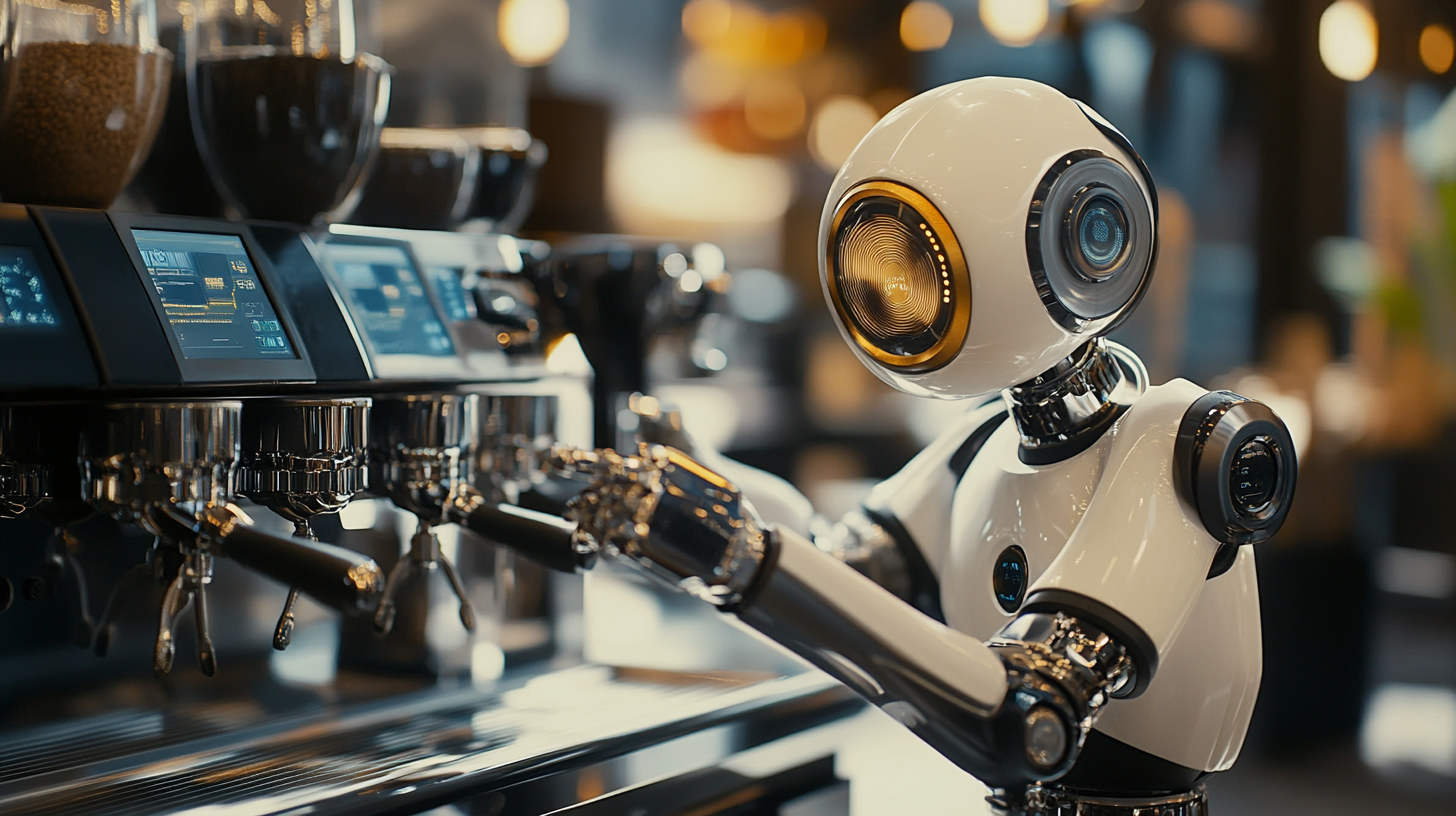
Key Technological Advances Shaping the Future of Coffee Robotics
The coffee industry is increasingly turning to robotics to meet evolving consumer demands and streamline operations. According to a recent report by the International Coffee Organization, the global coffee market is projected to reach $233 billion by 2025, fueled by a rise in coffee consumption and the demand for quick service. This growth presents an opportunity for robot baristas to play a pivotal role in enhancing coffee services through automation and innovation.
Key technological advances shaping the future of coffee robotics include Artificial Intelligence (AI) and machine learning algorithms that allow machines to customize brews based on individual preferences. A study from MarketsandMarkets suggests that the AI in the food and beverage sector is expected to grow from $2.5 billion in 2020 to $14.5 billion by 2026. This enables robot baristas to learn from past customer interactions, resulting in a more personalized experience that increases customer satisfaction and loyalty.
Additionally, advancements in sensor technology and IoT connectivity are revolutionizing the way robot baristas operate. Sensors can monitor coffee quality and freshness in real time, reporting data back to both operators and customers. The smart devices can predict maintenance needs, minimizing downtime and optimizing operational efficiency. According to a survey by Statista, 45% of coffee consumers value speed and convenience over traditional brewing methods, reinforcing the importance of implementing robotic solutions in coffee services.
As we look towards 2025, these innovative approaches to coffee service not only stand to enhance operational efficiency but also to redefine the customer experience, creating a dynamic environment that blends technology with the art of coffee making.
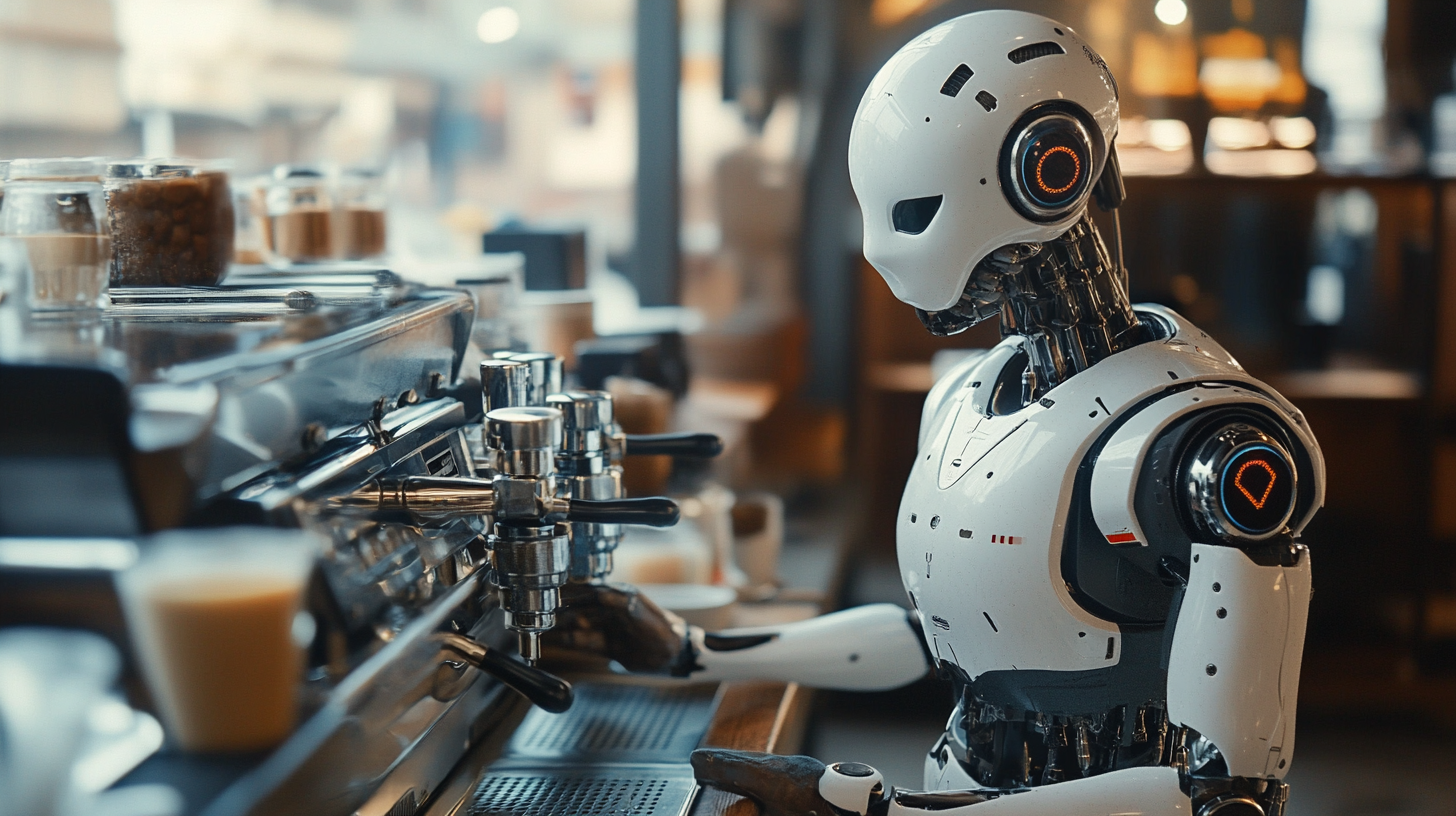
Innovative Service Models: Enhancing Customer Engagement through Automation
As the coffee industry continues to evolve, the integration of robot barista technology is revolutionizing traditional service models. With customer engagement at the forefront, innovative automation approaches are enhancing the way coffee is served and experienced. According to a report by MarketsandMarkets, the global coffee market is projected to reach $102.15 billion by 2026, underscoring the necessity for coffee shops to adapt and optimize their services to meet growing demand.
Robotic systems are stepping in to streamline operations while providing an engaging experience for customers. Recent advancements in artificial intelligence and machine learning have enabled robots to not only brew coffee but also interact with patrons in real-time. For instance, a survey by McKinsey reveals that 80% of consumers express a positive attitude towards automation in service industries, showcasing a promising trend for coffee retailers to merge technology with customer interaction. By implementing robotic baristas, businesses can reduce wait times and enhance order accuracy, effectively addressing two of the most common customer pain points.
Moreover, automated service models are now incorporating personalized features that resonate with individual preferences. For example, robots equipped with data analytics capabilities can remember customers’ past orders and suggest new variations based on their taste profiles. This personalized interaction not only enriches the customer experience but also fosters loyalty and repeat business. In a landscape where 64% of consumers prioritize unique experiences over product features, embracing innovative service models becomes a viable strategy for coffee shops aiming to differentiate themselves in a competitive market.
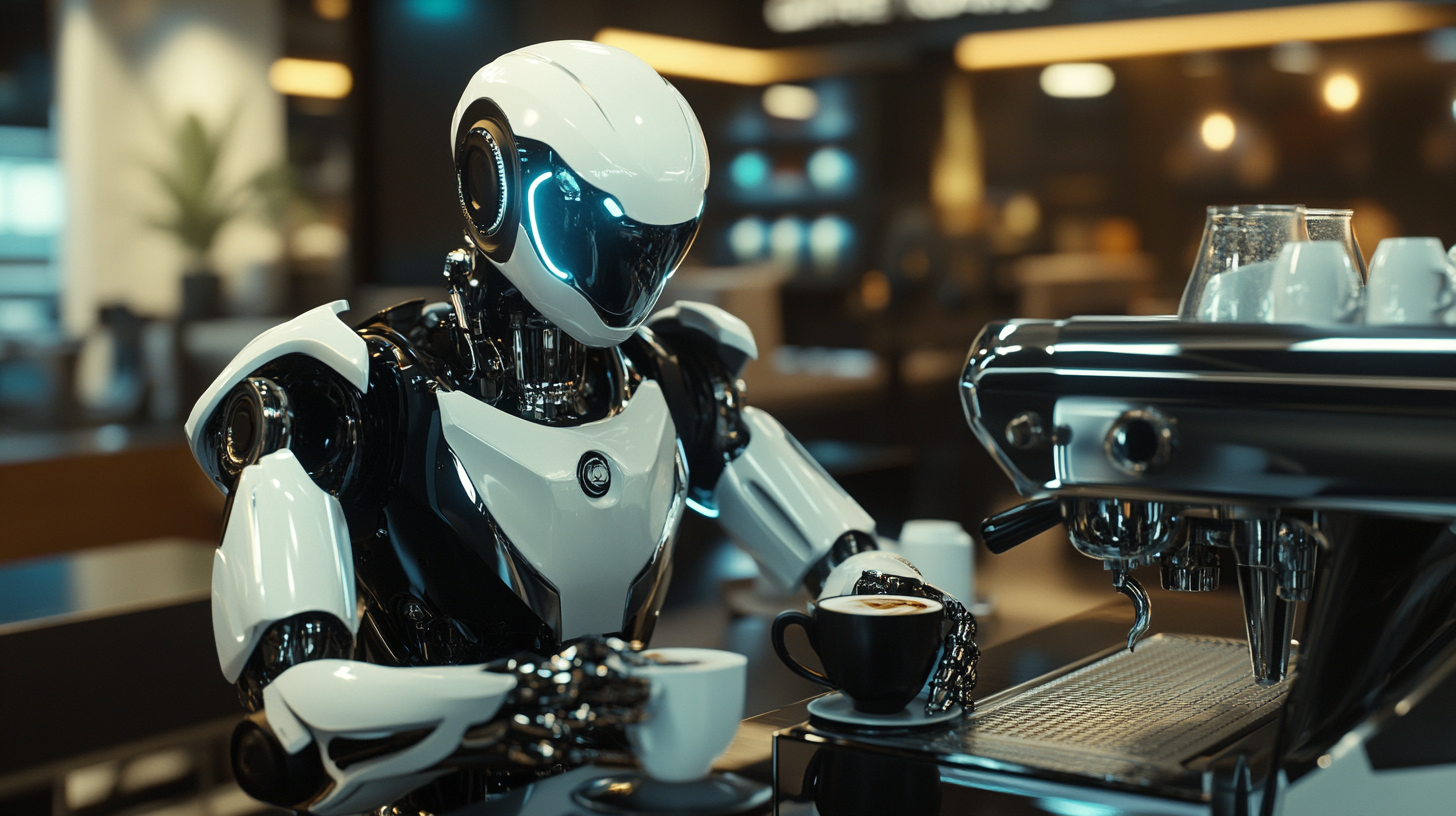
Sustainability in Robot Barista Design: Reducing Waste in Coffee Preparation
As the coffee industry evolves, sustainability has become a primary focus, particularly in the design and operation of robot baristas. The global coffee market is projected to reach $155.64 billion by 2025, according to a report by Grand View Research, emphasizing the necessity for innovations that can meet this burgeoning demand without exacerbating environmental issues. One of the key areas of innovation is waste reduction in coffee preparation. Traditional coffee-making processes often lead to significant waste, from unused beans to excessive packaging. By utilizing advancements in robotics, cafes can minimize these wasteful practices.
Robot baristas are not only more efficient but can also be designed to optimize ingredient usage. For instance, they can measure exact portions of coffee grounds, leading to a reduction in waste by up to 30%, based on research from the Specialty Coffee Association. Additionally, some prototypes are being developed to utilize coffee grounds for eco-friendly purposes, such as converting them into biodegradable packaging or compost, creating a circular economy within coffee services.
Moreover, leading coffee chains are exploring partnerships with tech companies to improve the sustainability of their supply chains. By integrating AI and machine learning algorithms, robot baristas can analyze customer preferences, reducing the quantity of beans wasted through overproduction. According to a recent McKinsey report, implementing such smart technologies in food service could decrease food waste by 50%, a pivotal step toward a more sustainable coffee future.
Integrating AI and Data Analytics for Personalized Coffee Experiences
As the coffee industry evolves, the integration of AI and data analytics is becoming increasingly essential for optimizing personalized coffee experiences. According to a report by Allied Market Research, the global coffee machine market is projected to reach $10.3 billion by 2025, with a significant portion of that growth attributed to advancements in technology. Robot baristas, equipped with AI-driven capabilities, will not only focus on brewing the perfect cup but also on understanding individual customer preferences through data collection and analysis.
AI algorithms can analyze customer behaviors and preferences in real-time, allowing robot baristas to suggest drinks tailored to specific tastes. A study by McKinsey highlights that personalized experiences can increase customer satisfaction by up to 20%. This means that a robot barista could recommend a dark roast with hints of chocolate for a customer who consistently orders similarly flavored coffees. The result is not only a more enjoyable experience for customers but also increased loyalty to brands that utilize these innovative technologies.
Incorporating advanced data analytics into coffee service operations also allows businesses to make informed decisions regarding inventory management and menu optimization. For instance, predictive analytics can forecast demand for various coffee types, enabling easier management of stock levels and minimizing waste. Such technological shifts represent a golden opportunity for coffee shops and chains, where the efficiency brought by robot baristas will go hand-in-hand with personalized service, ultimately transforming the coffee landscape by 2025.
